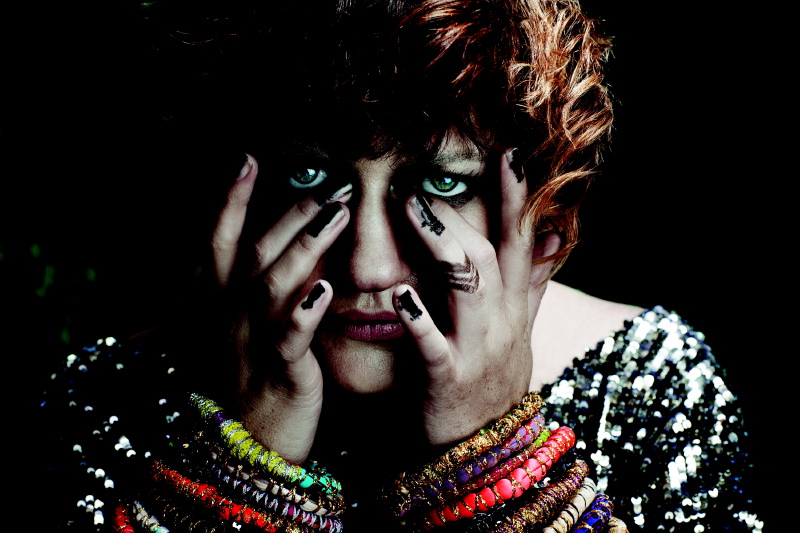“This record is essentially just childhood stories of mine,” Blackman says, a bundle of charm and sincerity when we speak. “Some stories come from places of complete truth and some come from places of imagination, but they are certainly all parts of me.” Lead single Mercy Killer is described as a “playful confession”, in which Blackman admits she deleted a text from someone’s phone once – the action in her life that she regrets the most. Surely, I suggest, she’s done worse than simply deleting a text? The question is met with a slightly diabolical chuckle. “Well, I’ve stolen heaps of stuff – but as far as writing a song about stealing stuff, I dunno…” she says. “I liked exploring the idea that I destroyed a little part of someone’s life. I interfered with someone’s life and never told them about it, and that’s not just about simply deleting a text. It says more about me as a person at the time and the issues I was dealing with.”
That sort of honesty in art can be a dangerous thing; loved ones can teeter between wanting desperately to be a part of an artist’s work and, at the same time, examining their songs for signs of betrayal. “My family are definitely used to it,” she says. “They don’t take any of it personally. Songs are always about more than one person, too. There are parts of people’s stories that you can take for your own and make it into a song. With a song and a story you can’t flower things, in case someone’s feelings are going to be hurt.”
While the album was recorded in Melbourne with producer François ‘Franc’ Tétaz (Gotye, Architecture In Helsinki, Sally Seltmann), the sketches and skeletons of each track were created in Chicago during a time that Blackman felt she had to escape Australia. “I went to Chicago because a really good friend of mine lived there and she was like, ‘Come and stay, I’ve got a spare room,’ so I did,” she explains. “I really wanted to get out of Australia and stop listening to the radio and stop having people hassling me about what the next record was gonna be. Also, this record being the first record under a record label [released through Universal] created a different type of expectation and a new world. I’m used to being independent and answering mostly to myself.”
Known as the artsy member of the roster, Blackman enjoyed playing within the world of big-label releases, determined to create relationships and connections and to not simply be a product. “I guess I’m more unpredictable than the other artists. That comes from speaking to them, not from me thinking that. I don’t want people to think that I put myself on some sort of pedestal,” she clarifies. “I do like to rile people up a little bit, though – especially working with new people. I have a Navajo statue that I bought in Wisconsin that has crazy black hair and is missing a leg and it has these crazy wooden eyes. I kept sending a photo of that creature to Peter Karpin, the head of Mercury, like every week, to hassle him about finding a producer. It was like, ‘This guy’s coming to get you!’ That’s just my personality and it’s like giving yourself out so people get to know you. I don’t like to make it all business; I like to share parts of myself and not just go in there going, ‘When is this happening? Why aren’t you doing this for me? Ra, ra, ra!’ You have to build relationships with everyone you’re working with like one big family. You’re all working towards the same thing.”
Blackman appreciated the label process and enjoyed being a part of the machines of the major label industry. But the reality is that she’s done it before on her own, and she’s not afraid of the idea of having to do it that way again. Even on a label, she is still the true definition of independent. “I have existed without them before. I’m not scared of them, I’m not trying to prove anything – and after years of doing that, I’m confident in the art that I make.”
BY KRISSI WEISS

